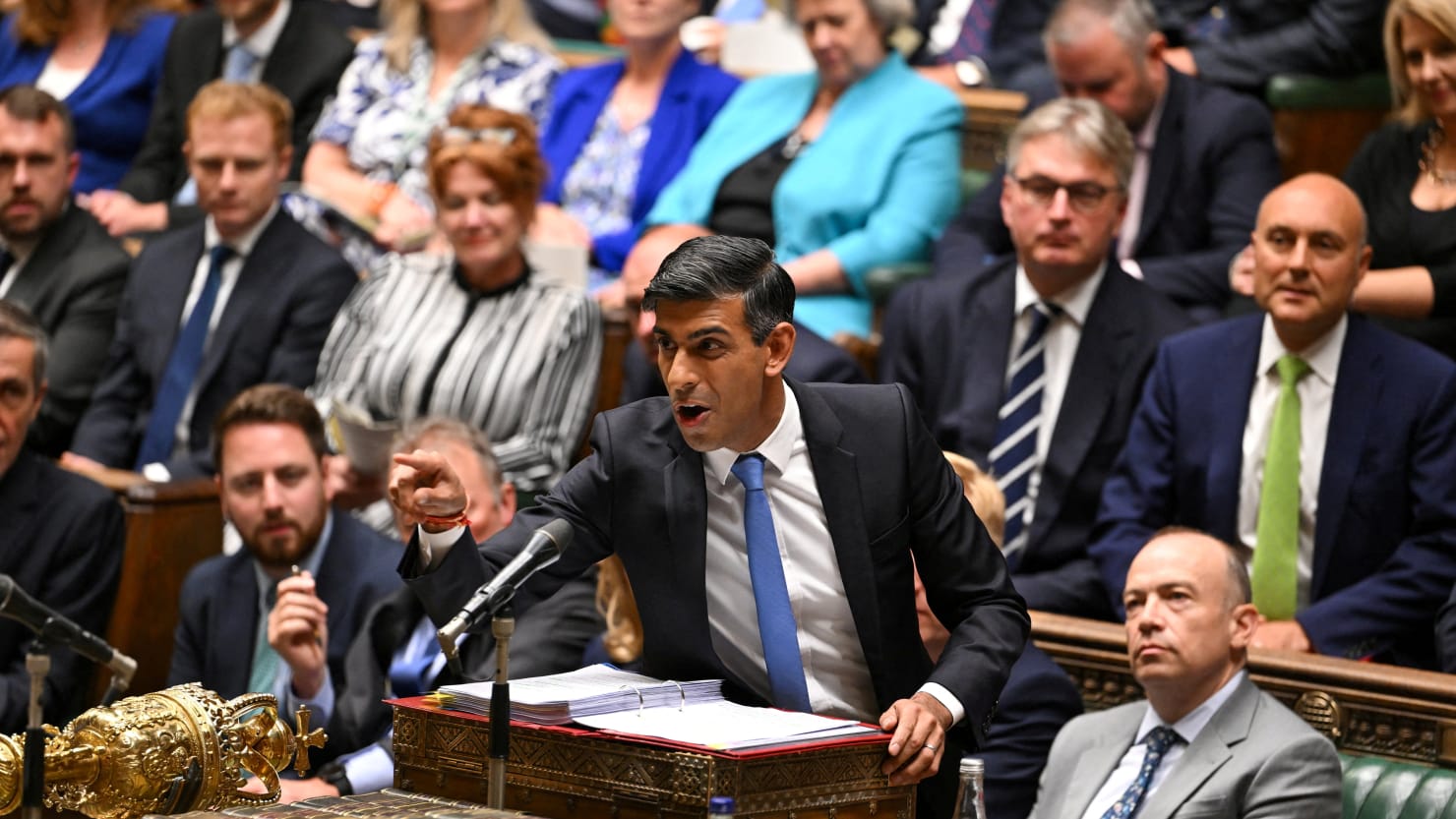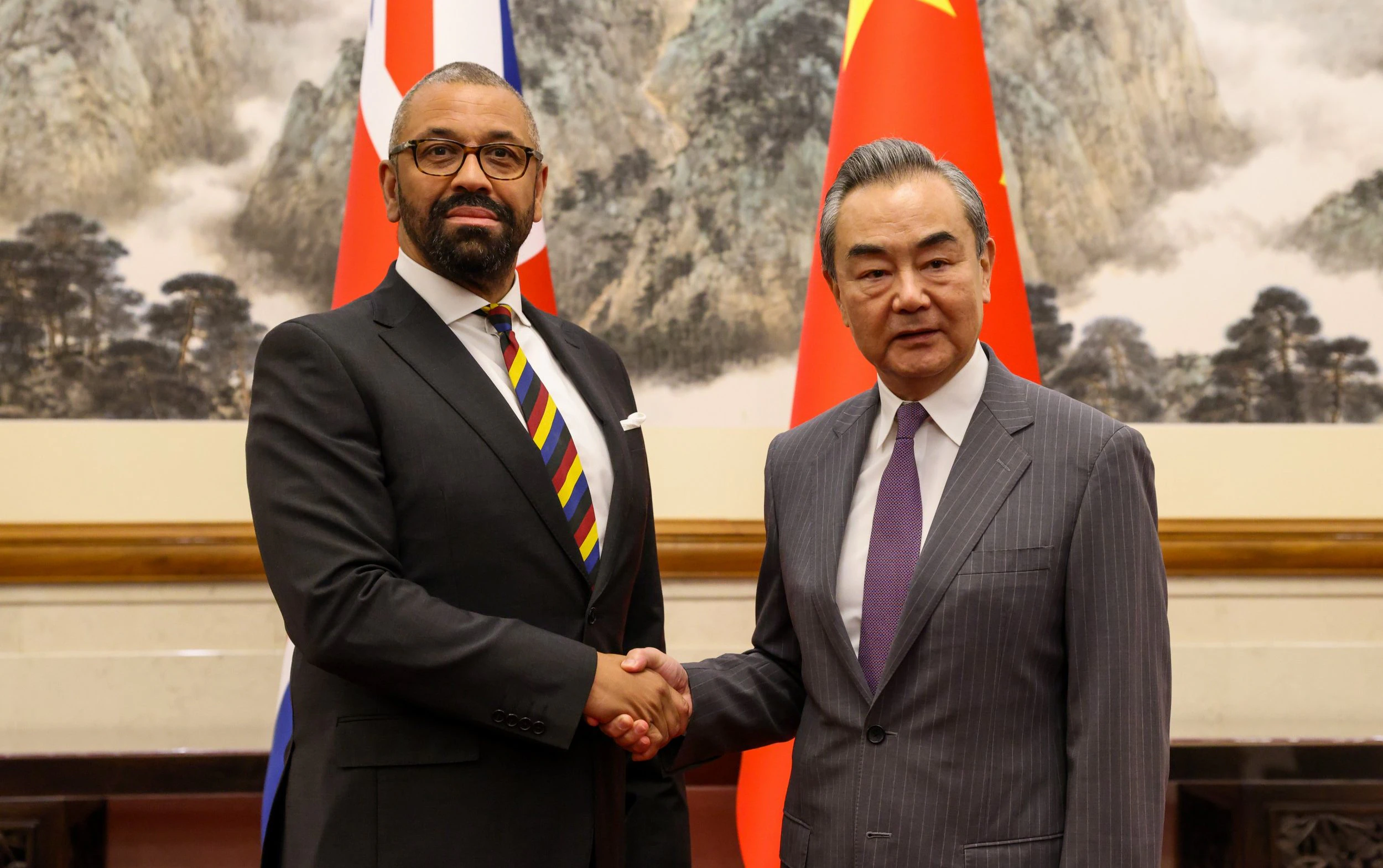Through a Teapot: How Is the Chinese Government Spying on British Officials?

A Chinese teapot, a gift from Beijing to a British embassy employee, turned out to be a spy device that could have compromised sensitive information, British officials said this month.
The employee, who was not identified, brought the teapot home from China after receiving it at a party, along with a set of other tea items. He discovered the hidden microphone inside the teapot only when it broke while he was washing it, according to British media reports.
The incident, which occurred in the middle of this month, underscored the growing concerns about China’s espionage activities in the United Kingdom, especially after the arrest of two men in March, one of whom worked as a researcher in the British Parliament and was accused of spying for China.
G20 Recognition
Prime Minister Rishi Sunak raised the issue of China’s spying with his Chinese counterpart, Li Qiang, during the G20 summit in India this month, British officials said.
Sunak expressed his displeasure and demanded an explanation from Li, who denied any involvement by the Chinese government.
The British authorities said they did not believe that the teapot device had recorded any classified information, but they warned that it was a sign of China’s relentless efforts to infiltrate and influence British politics and society.
The main suspect in the spying case, a man in his twenties, had worked for several Conservative Party lawmakers as a parliamentary researcher, including Tom Tugendhat, the minister of state for security, and Alicia Kearns, the chairwoman of the foreign affairs committee in Parliament, British newspapers reported.
Both Tugendhat and Kearns have access to confidential information on China and other global issues and have been vocal critics of the Chinese government’s human rights abuses and territorial ambitions. The suspect, who had previously worked in China, was suspected of being recruited by Chinese intelligence and sent back to the United Kingdom to gather information and influence opinions, the British authorities said.
The case was one of the most serious examples of China’s spying in the UK and added to the tensions between the two countries over trade, security, and human rights.
As Britain grapples with the rising threat of Chinese espionage, the Chinese embassy in London has dismissed the arrest of two suspects accused of “providing China with intelligence information” as a baseless and malicious smear.
A parliamentary report had faulted successive British governments for failing to recognize the risk that China poses to the UK’s national security and warned that Chinese intelligence was targeting the UK and its interests in a “growing and aggressive” way.

Espionage Training
Last month, before traveling to Beijing, British Foreign Secretary James Cleverly and his team received weeks of training to avoid falling prey to nefarious schemes and cyberattacks, the Daily Mail reported.
The foreign secretary’s entourage was instructed not to bring their smartphones and laptops, and any government computers they used in the United Kingdom were inspected and wiped clean after their return. They were also given temporary phones that were destroyed after the trip.
Meanwhile, official alerts were issued about the use of surveillance cameras made by Chinese firms linked to the Beijing authorities, especially in government buildings and sensitive sites in the UK, such as the ministries and Parliament.
New installations of Chinese surveillance cameras in government facilities were banned, and there was a plan to replace the existing ones out of fear that they could be hacked by China and used to access confidential information.
The British actions drew ire from China, which accused the UK of using security reasons to restrict Chinese companies. The Chinese embassy denied in a statement that the camera-makers had any ties to the Chinese government and said that Chinese companies complied with the local laws of the countries where they operated.
Earlier, the UK had followed the United States in imposing limits on communication equipment made by the Chinese company Huawei, ranging from excluding the devices used for building the fifth-generation cellular network to prohibiting the use of Chinese phones by officials and government employees.
The Times had previously reported a warning from the British domestic intelligence agency (MI5) that Chinese spies were infiltrating the United Kingdom by acquiring the citizenship of a third country.
The British intelligence service presented proof of the arrival of citizens from “hostile countries,” including China, to the UK after obtaining citizenship in countries whose citizens could travel to the UK without a visa.

Spies Caught
The specter of Chinese spies infiltrating the British government has stirred a frenzy in Westminster, where a parliamentary researcher was arrested and two aspiring lawmakers were barred from running after warnings from the security services.
The uproar, reminiscent of the Cold War era, reflects the growing scrutiny and criticism of China’s alleged efforts to influence and intimidate foreign governments and dissidents abroad.
The scandal also exposes the dilemma facing the United Kingdom and other American allies, who are torn between confronting China over its human rights abuses and economic coercion and seeking its cooperation on trade and global issues.
Iain Duncan Smith, a former leader of the Conservative Party and a vocal critic of China, said he was “distinctly concerned” about the British government’s stance on China and its “determination to undermine Western nations.”
He described the suspected spy ring in Westminster as a sign of a broader problem: the reluctance of Western countries to challenge China for fear of damaging their own interests.
The controversy erupted when The Times reported that a researcher who specialized in China and worked for several Conservative lawmakers had been arrested in March on suspicion of espionage for Beijing.
The Metropolitan Police said in a statement that two men had been detained under the Official Secrets Act, a law that covers spying and leaking classified information. The police did not identify the suspects or provide any evidence, only saying that one was in his 20s and arrested in Edinburgh, Scotland, and the other was in his 30s and arrested in Oxfordshire, England. Neither has been charged.
The researcher, who is the younger of the two, was named by The Times and other outlets. His role in Parliament was also discussed in the House of Commons and in his own statement.
The Chinese Foreign Ministry dismissed the allegation as “entirely groundless” and urged the UK to “stop spreading disinformation and stop political manipulation and malicious slander against China.”
However, the British authorities were not reassured.
Days after the arrests were made public, The Times reported that MI5, the domestic intelligence agency, had advised the Conservative Party to drop two of its prospective candidates for Parliament because they could be Chinese agents. The party followed the recommendation and blocked them from running.
Maria Caulfield, a junior health minister, confirmed the report on Times Radio on Wednesday and said the party had taken “swift action.”












